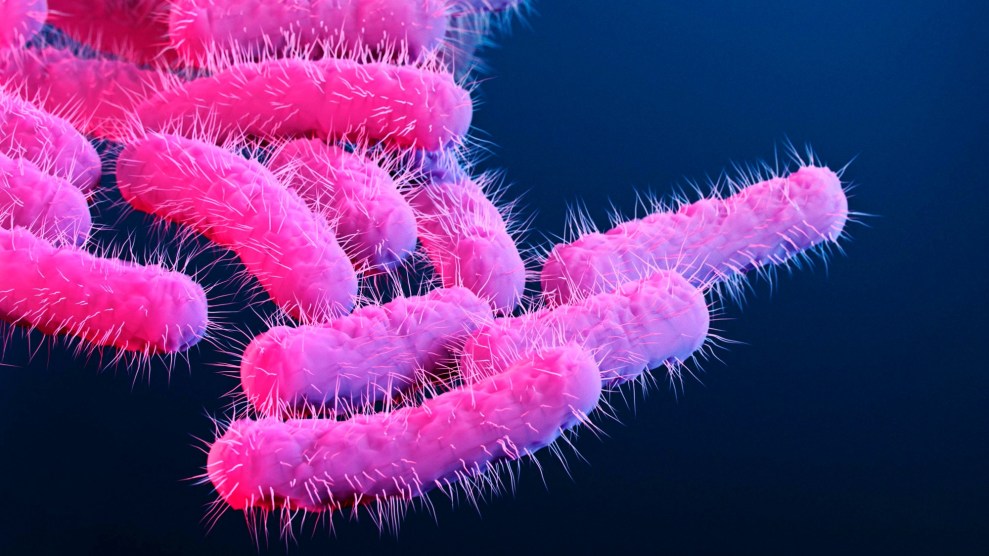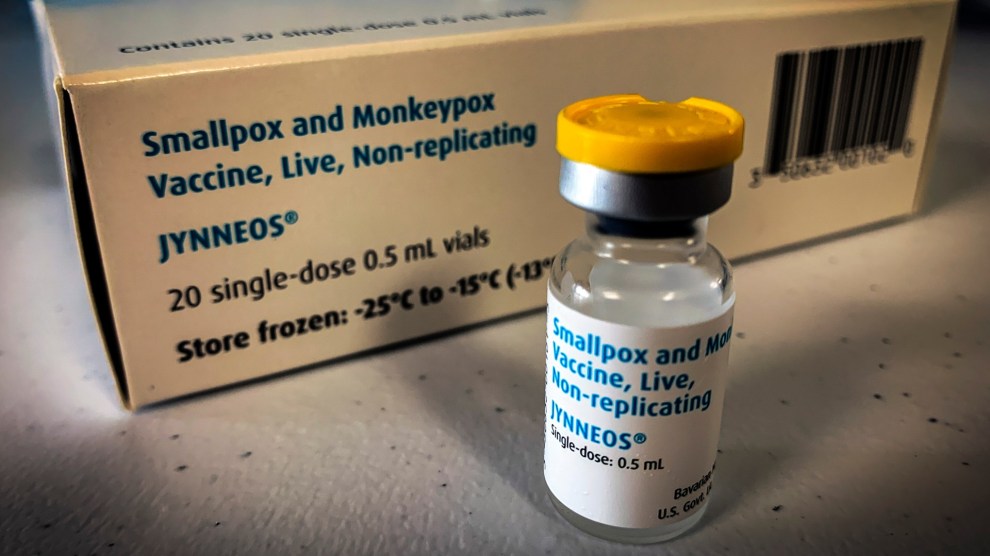
Science Photo Library/AP
The Centers for Disease Control and Prevention are warning public health officials about a significant uptick in stomach infections caused by an antibiotic-resistant strain of bacteria. On Friday, the CDC issued an advisory, saying that they’re monitoring an increase in cases of shigellosis, an illness that can cause diarrhea, fever, and abdominal cramps.
Caused by a strain of bacteria called shigella, this stomach bug is usually treated without antibiotics, but immunocompromised people, like those with HIV or receiving chemotherapy, are at risk of a more serious illness. Severe shigellosis can be life-threatening.
According to the Washington Post, shigella causes an estimated 450,000 infections annually. In 2022, the CDC saw 5 percent of infections resistant to five common antibiotics, compared to none in 2015. Resistant infections have been reported in 29 states, with the highest in California, Massachusetts, and Colorado.
In an email to the Post, Naeemah Logan, a CDC medical officer, said that these drug-resistant shigella infections are “hard to treat” and are “easily transmissible among vulnerable populations.” Historically, shigella infections have primarily affected children under the age of four, but the CDC reports seeing a significant uptick in shigellosis in adults, specifically the following groups:
- Men who have sex with men
- People experiencing homelessness
- People traveling internationally
- People living with HIV
The bacteria can spread with direct person-to-person contact, but it can also spread indirectly through contaminated food, water, and other routes. According to the CDC, it only takes a small amount of bacteria to make someone sick, and it can still spread weeks after the diarrhea stops. Currently, the CDC doesn’t have any recommended treatment for the resistant forms of shigella.
Logan warns that these infections are “are a serious public health threat” and the CDC “wants to ensure that providers are aware of the increasing potential for antibiotics to fail.” According to the CDC’s website, the agency has scheduled a call on February 28 to brief clinicians about the increase in infections and how to manage it.
















